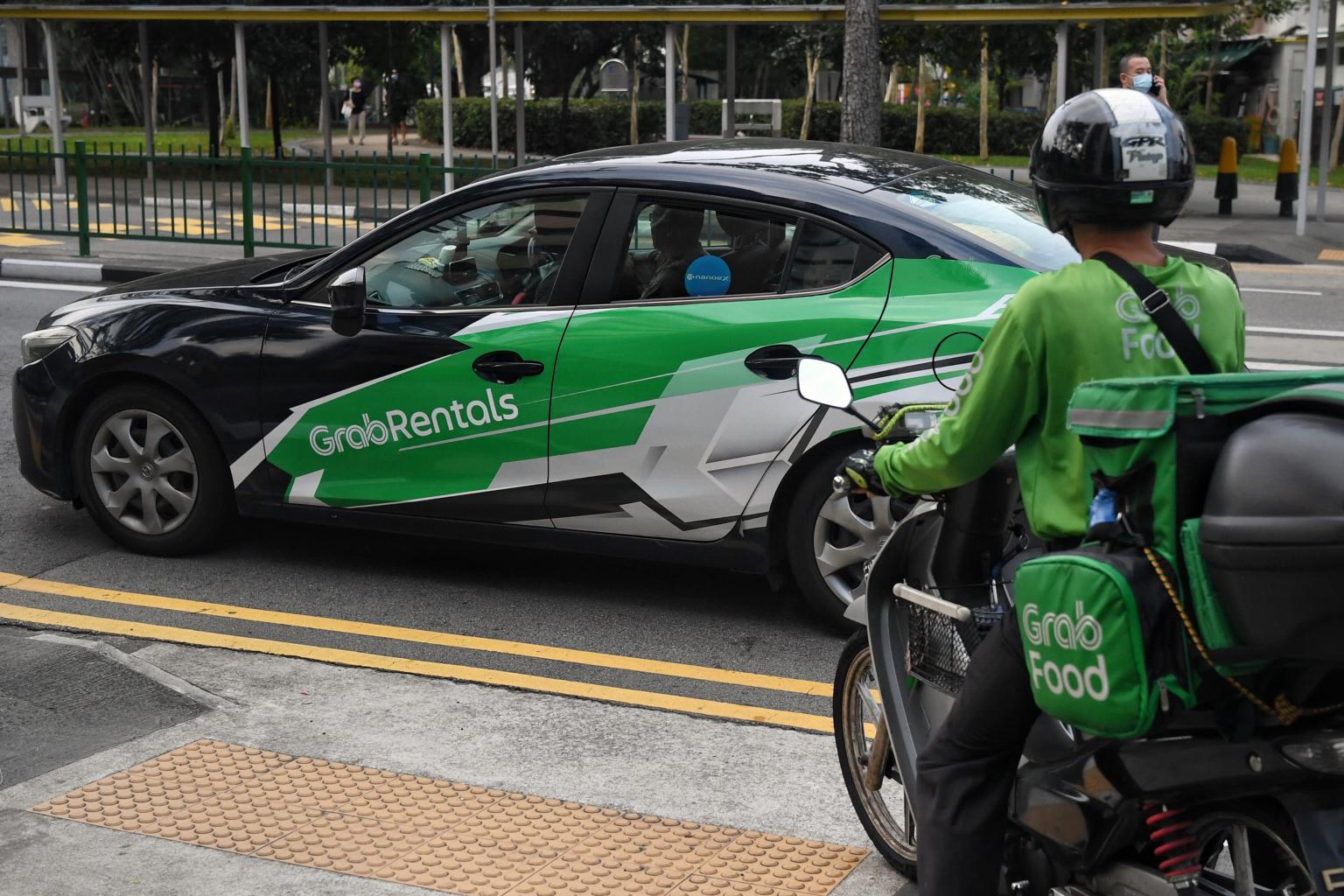Grab enters digital maps business, targets app builders in South-east Asian cities
Sign up now: Get ST's newsletters delivered to your inbox

Grab aims to capture a slice of the annual billion-dollar market for mapping services in South-east Asia.
PHOTO: ST FILE
SINGAPORE - Grab on Wednesday (June 8) announced plans to enter the digital maps business, offering other businesses access to its GrabMaps mapping and location technology.
The service is being positioned as a competitor to other enterprise mapping solutions like Google Maps Platform and Bing Maps for Enterprise, and claims to do a better job of offering "hyperlocal" routes that make use of back alleys and narrow side streets common in South-east Asian cities.
Grab aims to capture a slice of the annual US$1 billion (S$1.37 billion) market opportunity for mapping services in South-east Asia.
The technology was first developed to power Grab's ride-hailing and delivery platform, and is in currently used for this purpose in seven of the eight countries in which Grab operates - Singapore, Cambodia, Malaysia, Myanmar, the Philippines, Thailand and Vietnam. Indonesia is the exception.
The technology enables Grab to allocate drivers or deliverers to customers, calculate estimated trip times, and plan and optimise routes.
Grab said its GrabMaps system currently handles more than 800 billion requests a month across all its services.
Its services will be fully powered by GrabMaps by the third quarter of this year.
Grab co-founder Tan Hooi Ling said: "The third-party mapping services that we relied on did not have these small lorongs (alleyways) that South-east Asia so commonly relies on, or they didn't have the right pick-up or drop-off points in the big malls in South-east Asia. These were capabilities that everybody relied on day to day and got used to."
Updating the third-party maps with the correct information would often take months, she added.
"Because we couldn't get the quality of service that our consumers and partners deserved, we decided that it was time for us to build and invest in it ourselves."
Ms Tan added that Grab has invested to turn its mapping and location intelligence into a competitive advantage.
"Commercialising this technology is another step forward to our young but fast-growing enterprise and new initiatives business."
Grab's target customers include South-east Asian tech platforms, telcos, logistics companies, e-commerce platforms and government agencies.
GrabMaps has launched with two services as a start.
First, it lets companies license the use of Grab's base map data, allowing access to places, roads, traffic and 360-degree street images.
Second, it offers access to software-as-a-service map-making tools such as its KartaCam map-making camera, which is currently being piloted by partner companies in Paris, Johannesburg, Dubai and Seattle.
Second, it offers access to software-as-a-service map-making tools such as its KartaCam map-making camera, which is currently being piloted by partner companies in Paris, Johannesburg, Dubai and Seattle.
Grab estimates its KartaCam tool is 10 times cheaper than alternatives on the market, while offering about the same quality.
Grab will launch an application programming interface to allow developers to create apps that make use of GrabMaps by the third quarter of this year. It will also launch mobile software development kits for iOS and Android developers next year.
Mr Philipp Kandal, Grab's head of geo, said GrabMaps' community-driven approach to mapping will set it apart from its competitors.
"We have the largest fleet of drivers and delivery partners in South-east Asia, (including) cars, two-wheel vehicles and any kind of transportation that you can imagine... Every time a trip or a delivery is made, this data improves our map."

Grab estimates its KartaCam map-making camera is 10 times cheaper than alternatives on the market.
PHOTO: GRAB
Grab also responds to community feedback quickly, Mr Kandal added.
"Our community is our drivers, merchants and consumers of our services that constantly provide us feedback directly from within the Grab app.
"If a pick-up point has changed, if your condo has a new pick-up point, the users can easily add that and we will process this within a matter of days."
Mr Kandal said GrabMaps will also build capabilities for indoor navigation in the future.
Asked if Grab will price its new offering aggressively to compete with established players, Mr Kandal said the company's focus is on building "the best maps for South-east Asia".
"Having said that, obviously, the cost of our offering is always going to be very, very competitive, so we definitely expect that we are offering a high-value service to our partners."
There are no plans to develop a navigation app for consumers, like Google Maps.


